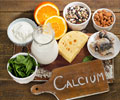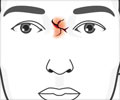According to a review that was published in the Friday’s issue of the British Medical Journal, calcium supplements to kids does not reduce their risk of fractures in the later years
According to a review that was published in the Friday’s issue of the British Medical Journal, calcium supplements to kids does not reduce their risk of fractures in the later years.
According to the research, 90% of the maximum bone mass is got by the age of 18 years. Hence, it is expected that enhancing bone mass at an early age might reduce the effects of age-related bone loss and osteoporosis.The results of 19 studies, on about 2,900 kids and teens aged 3-18, were examined by the researchers. The participants in these studies were given calcium supplement or a dummy pill for a period ranging from 8.5 months – 7 years.
According to the report, only 1.7% improvement in bone density was observed in those taking calcium supplement compared to those who did not take. The increase was only in the upper limbs, whereas, it is the hip and lower spine that are the areas of fracture risk in adulthood.
"The small effect of calcium supplementation on bone mineral density in the upper limb is unlikely to reduce the risk of fracture, either in childhood or [in] later life, to a degree of major public health importance," Tania Winzenberg of Menzies Research Institute in Tasmania, Australia, and her colleague concluded.
"Given the small treatment effects seen with calcium supplementation, however, it may be appropriate to explore possible alternative nutritional interventions, such as increasing vitamin D concentrations and intake of fruit and vegetables."
Margarine, eggs, chicken liver, salmon, sardines, mackerel, swordfish and fish oils like halibut and cod liver oils contain vitamin D. Vitamin D is also naturally produced during the exposure of body to the sun.
Advertisement
GYT











